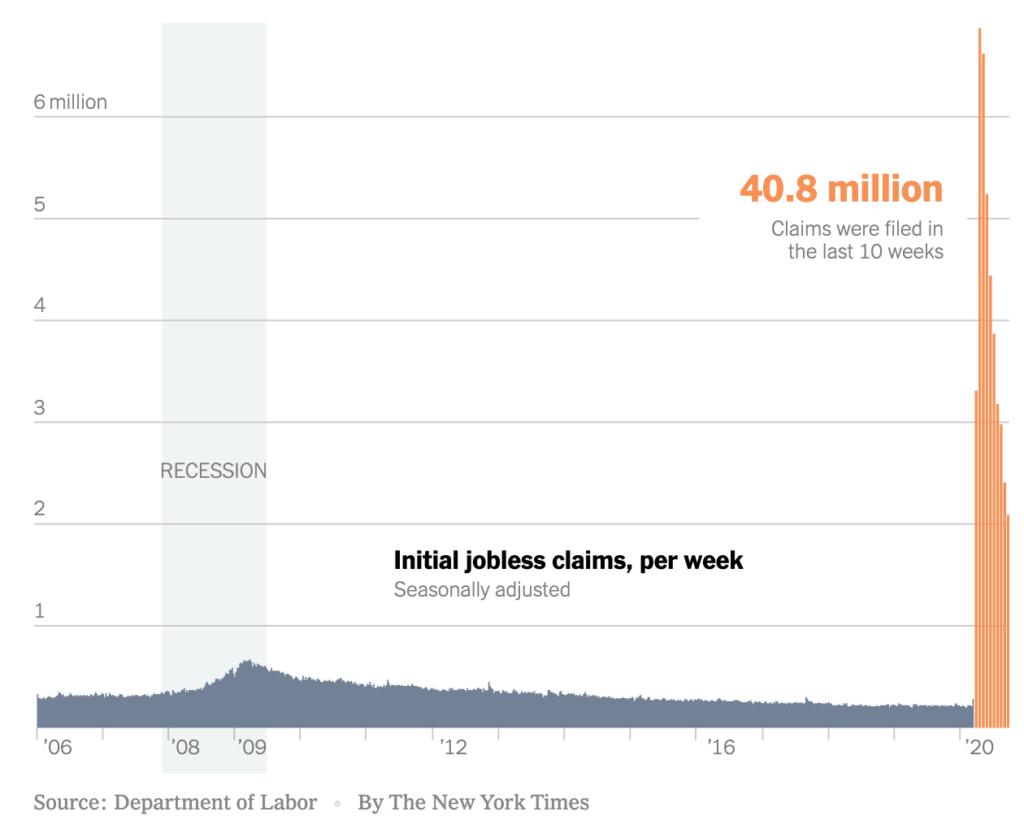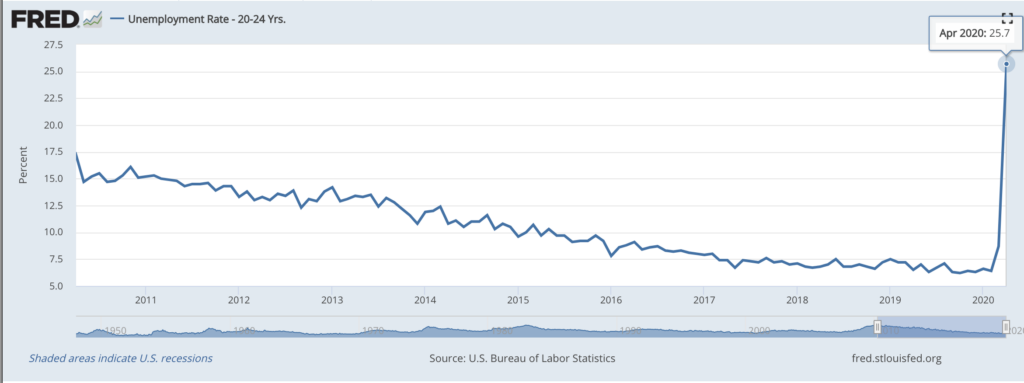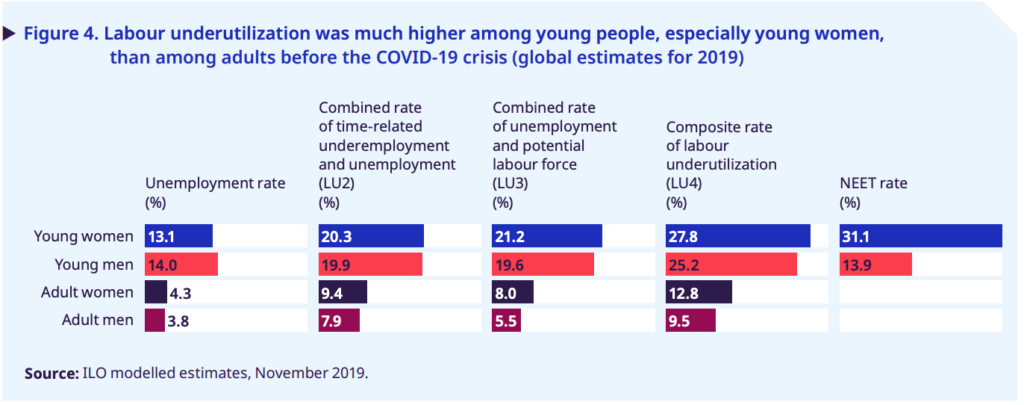As the Class of 2020 commences, into what economic state do they commence?
As reported by Courtney Weaver in the Financial Times on May 28, 2020:
With US unemployment at its highest level since the second world war and the country still grappling with the economic fallout of coronavirus, university graduates are watching start dates be deferred, internships cancelled and their chosen professional fields look significantly less stable.
US graduates in crisis: ‘entry level jobs are not safe at all’
Over 40 million people have filed unemployment claims in the last ten weeks, since mid-March 2020.

And, as Zero Hedge reported:
….what is most disturbing is that in the last ten weeks, almost twice as many Americans have filed for unemployment than jobs gained during the last decade since the end of the Great Recession… (22.13 million gained in a decade, 40.767 million lost in 10 weeks)
Over 40 Million Jobless In 10 Weeks – “Nobody Ever Imagined It Would Get This Bad So Fast”, May 28, 2020
So, as new grads enter the job market, many for the first time, their prospects for employment seem dismal. As stated in a recent report by the International Labour Organization, the UN agency for the world of work:
…in the United States, where the unemployment rate for young men (aged 16–24) increased by a comparable amount from February to April 2020 (from 8.5 to 24.0 per cent), while the rise for young women (aged 16–24) was even greater (from 7.5 to 29.8 per cent)
ILO Monitor: COVID-19 and the world of work. Fourth edition, May 27, 2020

And, even before the pandemic-induced economic upheaval, young workers were already disporportionately affected:

Anecdotally, one 25 year old young professional, who was hired for her first full-time job where she could ultilize her college degree in the months before the pandemic, shared:
I feel extremely lucky to still be working full time and to have a job that allows me to work from home
In conversation, she shared that her peers are not so fortunate. Many have been laid-off and worked in industries, like event planning, which will continue to be depressed, as large gatherings will likely be slow to restart. She mentioned that several are considering changing careers, yet are unsure what industries interest them, and now graduated from college, are unsure where to turn for career advising. Others are concerned if they can be hired, given their lack of experience in new industries. Their anxiety and dismay is palpable.
The risks for the recent college grad and her peers are greater than simply delaying the start of adulthood.
Economists warn that a prolonged economic downturn could reshape the lives of America’s graduates for years to come, weighing on future wages and discouraging the kind of risk-taking that often allows workers to jump ahead in their careers.
US graduates in crisis: ‘entry level jobs are not safe at all’, Financial Times, May 28, 2020
Logically, when workers start in lower waged or salaried jobs, although they may be promoted with concomitant raises, over their lifetime they will likely earn less.
Students who entered the workforce right after the global financial crisis in 2008 are doing worse, both in terms of their employment rate and wages, almost 10 years later compared to peers who graduated either right before them or after the recession was over…
Jesse Rothstein, professor of public policy and economics at the University of California, Berkeley, US graduates in crisis: ‘entry level jobs are not safe at all’, Financial Times, May 28, 2020
If history is prologue, then Class of 2020 graduates, their Class of 2018 and 2019 peers and those Class of 2021 and 2022 students anxiously watching from the wings, will suffer a similar fate as their older colleagues who graduated in 2008, as current economic recovery will likely take many years.
Thus, if as Gary Burtless, a senior fellow at the Brookings Institution, stated in the Financial Times:
Many people will find they are in worse positions than they would have expected based on their qualifications and how well they did in high school and college…
US graduates in crisis: ‘entry level jobs are not safe at all’, May 28, 2020
then, new college grads will likely taste the bitterness of the unfulfilled promise of economic prosperity from earning a college degree. As a result, Gen Z’ers’ and Millennials’ sentiment about the value of a college degree is likely to continue declining, potentially depressing demand for attending college and inciting a crisis in US higher education.



